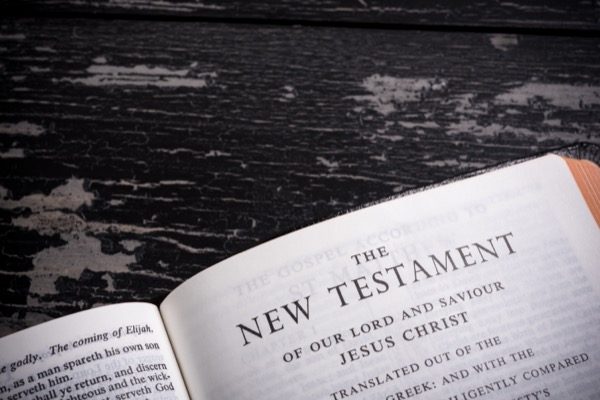From the Archives

The first ‘International Conference on the Deliverance of Jesus Christ from the Cross’ was held on 2nd, 3rd and 4th June, 1978, at the Commonwealth Institute, London, and attracted more than 1500 researchers from numerous faiths the world over. Organised by the Ahmadiyya Muslim Mission, UK, the purpose of the conference was to draw the attention of the world to unique research by the Promised Messiah(as) and present groundbreaking evidence of Jesus’ deliverance from the cross – alive. The event was addressed by renowned world scholars, and the then Head of the worldwide Ahmadiyya Muslim community, Hadhrat Mirza Nasir Ahmad(ra), Khalifatul Masih III, arrived from Pakistan to especially address the convention (see The Review of Religions, August 2010 edition). The Times, The Guardian, The Sunday Telegraph and other newspapers and TV stations, all covered the run-up to this conference. Sir Zafrulla(ra) presented this paper at the conference. Sir Zafrulla Khan(ra) (1893-1985) was a Companion of the Promised Messiah(as), eminent scholar of the Ahmadiyya community and a prolific writer and orator. He was the first Foreign Minister of Pakistan, President of the United Nations General Assembly and President of the International Court of Justice at the Hague.
Introduction
Jesus(as) was the last prophet in Israel. He was called the son of God, an expression that although was in common use in scripture, was always employed metaphorically and in no single instance did it connote God. Nowhere in the Gospels or the Epistles is it said that Jesus(as) referred to himself as God, or implied that he was God. The expression ‘Lord’ was applied to him, but there is no evidence that those who made use of this expression with reference to him, believed or meant to convey, that he was God. It was used as a synonym for “master”.
It was long after his time that the expression “son of God” was transmuted into “God, the Son”, meaning thereby that Jesus(as) was the second person in the Trinity. The entire concept of the Trinity was foreign to the thinking of Jesus(as).
Jesus(as) – a Prophet
Jesus(as) always referred to himself as having been sent by God, meaning that he was a Divine messenger. For instance:
This is Eternal Life: to know you the only true God, and Jesus Christ whom you have sent. (John 17:3)
I can of my own self do nothing, as I hear I judge and my judgement is just; because I seek not my own will, but the will of the Father which has sent me. (John 5:30)
And the Father Himself, which has sent me, has borne witness of me. (John 5:37)

It is clear, therefore, that Jesus(as) consistently put himself forward as one who had been sent by God, that is to say, as a messenger of God. In fact, his function as a messenger of God was defined even before his birth by Divine direction, as stated both in the Gospel and in the Holy Qur’an. The angel that appeared to Mary and told her that she would bear a son whom she should name Jesus(as), also informed her that God would give him the throne of his father David, and that he would reign over the house of Jacob (Luke 1:32-33).
The Qur’an affirms that Mary was told that God would teach Jesus(as) the book and wisdom, and the Torah and the Gospel, and would make him a messenger to the children of Israel (Ch.3:Vs.49-50).
“Son of God” – True Meaning
It is true that in Luke 1:32, he is called the “son of the Highest” and in 1:35, the “son of God”; but these expressions in Biblical idiom do not at all connote Divinity or partnership in Divinity. We read:
I have said, ye are gods; and all of you are children of the most High. (Psalms 82:6)
In numerous instances the expression son of God is applied to prophets, to the righteous and to believers. The following are only some examples out of many:
Israel is My son, even My first born. (Exodus 4:22)
Also I will make him (David) My first born, higher than the kings of the earth. (Psalms 89:27)
He (Solomon) shall be My son, and I will be his Father. (1. Chron 22:10)
Blessed are the peacemakers, for they shall be called the children of God. (Matt. 5:9)
Behold, what manner of love the Father hath bestowed upon us, that we should be called the sons of God. (1 John 3:1)
More significant than all this is the explanation furnished by Jesus(as) himself, which is as follows:
Then the Jews took up stones again to stone him. Jesus answered them, “Many good works have I showed you from my Father; for which of those works do you stone me?” The Jews answered him, saying, “For a good work we stone thee not; but for blasphemy; because that thou, being man, makest thyself God.” (John 10:31-33)
Now, the crucial question was directly posed to Jesus(as). Did he claim to be God, the second person in the Trinity, as he subsequently came to be represented? His answer must be accepted by all those who profess to believe in him and follow him.
Jesus(as) answered them;
Is it not written in your law, I said, ye are gods? If he called them gods unto whom the word of God came, and the scripture cannot be broken; say ye of him, whom the Father hath sanctified, and sent into the world, thou blasphemest; because I said, I am the son of God? (John 10:34-35)
This makes it quite clear that the expression ‘son of God,’ when applied to Jesus(as), by himself or by others, meant no more in his case than it meant in its application to others in scripture, of which we have set out several instances above. He was son of God in that sense, but in no way at all God – the son, the second person in the Trinity, as is now claimed.
The Father of All
It is contended, however, that in the same context Jesus(as) had also said: I and my Father are one (John 10:30) and The Father is in me, and I in him (John 10:38); and that these affirmations lend support to the claim made on his behalf that he was not merely the son of God in the Biblical idiom, but had a relationship with God which elevated him to the Godhead, and made him a partner and an associate of God on an equal footing.
We shall now proceed to show that in the idiom of the Bible the expression relied upon does not carry the matter any further, and does not furnish the least evidence of the divinity of Jesus(as); for instance:
At that day ye shall know that I am in my Father, and ye in me, and I in you. (John 14:20)
That they all may be one; as Thou, Father, art in me, and I in Thee, that they also may be one in us : That the world may believe that Thou hast sent me. And the glory which Thou gavest me I have given them; that they may be one, even as we are one. I in them, and Thou in me, that they may be made perfect in one: and that the world may know that Thou hast sent me and hast loved them as Thou hast loved me. (John 17:21-23)
One God and Father of all, who is above all and through all, and in you all. (Ephesians 4:6)
Jesus Distinct from God
The distinction between Jesus(as) and God was well-understood among the disciples and the early Christians, as would be appreciated from the following:
For we are the circumcision, which worship God in the spirit, and rejoice in Christ, Jesus, and have no confidence in the flesh. (Philippians 3:3)
But to us there is but one God, the Father of whom are all things, and we in Him; and one Lord Jesus Christ by whom are all things, and we by him. (1 Cor. 8:6)
Jesus(as) himself brought out the distinction clearly in attributing divinity to God alone, who was also his God, as for instance:
Go to my brethren, and say unto them, I ascend unto my Father, and your Father; and to my God, and your God. (John 20:17)
God is One
Jesus(as) had not the slightest hesitation in affirming the Unity of God. For instance:
One of the scribes came…and asked him, which is the first commandment of all? And Jesus answered him, The first Of all the commandments is, Hear O Israel, the Lord, our God, is One Lord: and thou shall love the Lord, thy God, with all thy heart, and with all thy soul, and with all thy mind, and with all thy strength: This is the first commandment…And the scribe said unto him, Well, Master, thou hast said the truth; for there is One God; and there is none other but He. (Mark 12:29-30 & 32)
God alone is immortal: the blessed and only potentate, King of Kings, and Lord of Lords; who only hath immortality, dwelling in the light which no man can approach, whom no man hath seen, nor can see: to whom be honour and power everlasting. (1 Tim. 6:15-16)
Jesus not Equal to God
The doctrine of Trinity necessarily imports the complete equality in all respects of the three persons of the Trinity. If there were inequality in any respect between them, that would mean the superiority of one over the other two, in which case the one or the two, that lacked equality could not be God; the one who has superiority over the other two would be God of the universe, including the other two. Even a cursory study of the Gospels and the Epistles reveals that in respect of the attributes of which there is a record, the Father is supreme, and there is a disclaimer by Jesus of those attributes.
For instance, God alone is the true source of honour, as is said:
How can you believe when you accept honour from one another, and care nothing for the honour that comes from him who alone is God. (John 5:44)
This finds support in the Qur’an: Whoso seeks honour should realise that all honour belongs to God. (35:11)
And, behold one came and said unto him, Good Master, what good things shall I do, that I may have eternal life? And he said unto him, Why callest thou me good? There is none good but one, that is, God: But thou wilt enter into life, keep the commandments (Matt. 19:16-17)
Jesus(as) disclaimed absolute power. When Zebedee asked him to grant that her two sons may sit, the one on the right hand and the other on his left hand in his kingdom, the reply given by him was:
To sit on my right hand, and on my left is not mine to give but it shall be given to them for whom it is prepared of my Father. (Matt: 20:23)
His knowledge was not as infinite as the knowledge of God. This is illustrated when he said after setting out certain signs concerning the day and hour of his second coming;
But of that day and that hour knoweth no man, no, not the angels which are in heaven, neither the son, but the Father. (Mark 13:32)
Not only did Jesus(as) lack equality with God he also lacked equality with the third person in the Trinity, the Holy Ghost, as he himself said:
Wherefore I say unto you, all manner of sin and blasphemy shall be forgiven unto men; but the blasphemy against the Holy Ghost shall not be forgiven unto men. And whosoever speaketh against the Son of man, it shall be forgiven him; but whoso ever speaketh against the Holy Ghost, it shall not be forgiven him, neither in this world, neither in the world to come. (Matt. 12:31-32)
Jesus(as) Prays to God
Jesus(as) had the habit of prayer. As for instance:
He withdrew himself into the wilderness and prayed. (Luke 5:16)
He took Peter and John and James, and went up into a mountain to pray. (Luke 9:28)
It came to pass, that, as he was praying in a certain place, when he ceased, one of his disciples said unto him, Lord, teach us to pray as John also taught his disciples, and he said unto them, when ye pray, say, Our Father which art in heaven. Hallowed be Thy name….. (Luke 11:1-2)
Thus, quite rightly, all his supplications and those of his disciples were addressed to God. Obviously, therefore, there was not equality between the supplicant and Him to whom supplication was addressed. God had the power to respond to supplication and to grant it. Quite clearly Jesus(as) lacked such power, for indeed if he had possessed that power his supplicating God would have been meaningless. Had he been the second person in the Trinity, he would have been in no need of supplication, as he would have had the power to do all that he wished. This is well illustrated in his repeated supplications in the garden of Gethsemane, when he fell on his face, and prayed, saying:
O my Father if it be possible, let this cup pass from me: nevertheless not as I will, but as thou wilt. (Matt. 26:39)
The relationship between Jesus(as) and God was like that between a righteous servant and his gracious master. Nevertheless, “not as I will, but as Thou wilt”; is a clear affirmation of the supremacy of Divine will over the will of Jesus, which was subordinate to the Will of God. As he himself affirmed, he had been sent not to do his own will but to do God’s Will (John 6:38); which is an exact description of the relationship between God and a Prophet.
By contrast, there is no mention of the Father ever supplicating to the Son, which is clear proof that the Father was supreme and the son was subordinate to Him. as a servant is subordinate to his master.
Continues in the next edition




Add Comment